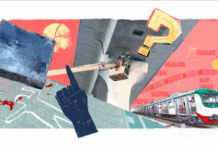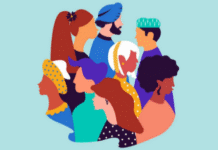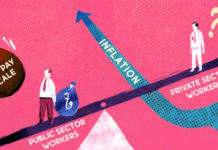May 27, 2014 marked the 50th death anniversary of India’s first prime minister who is the prime architect of our secular democracy. And November 14, 2014 was the 125th birth day of Nehru, writes Sukumaran CV
In a speech delivered at the Constituent Assembly on April 3, 1948, Nehru said: ‘[The] combination of politics and of religion in the narrowest sense of the word, resulting in communal politics is — there can be no doubt — a most dangerous combination and must be put an end to. It is clear that this combination is harmful to the country as a whole… so far as the government is concerned…we should function… to give a lead to the country in this matter, so that the country may realize as clearly as possible that the only right way for us to act is to do away with communalism in its political aspect in every shape and form.’
If India still survives as the largest democracy in the world, it is because of the inherent strength of our democracy and for that strength we owe greatly to Jawaharlal Nehru. But we have never been able to fully understand our first and only visionary prime minister and therefore we failed to emulate and strengthen the secular democracy we have inherited from him. India ‘seemed a strange and bewildering land’ to Nehru. And if he happens to see the India today, it will seem to him a stranger and more bewildering land with his secularism falling apart and democracy controlled by the corporate giants. Nehru wrote in An Autobiography:
‘I felt lonely and homeless, and India, to whom I had given my love and for whom I had laboured, seemed a strange and bewildering land to me. Even with my closest associates I felt that an invisible barrier came between us. The old world seemed to envelop them, the old world of past ideologies, hopes and desires. India is supposed to be a religious country above everything else, and Hindu and Moslem and Sikh and others take pride in their faiths and testify to their truth by breaking heads. The spectacle of what is called religion, or at any rate organized religion, in India and elsewhere has filled me with horror, and I have frequently condemned it and wished to make a clean sweep of it. Almost always it seems to stand for blind belief and reaction, dogma and bigotry, superstition and exploitation, and the preservation of vested interests.’ (Chapter 47, What is Religion?)
Nehru knew full well that ‘nationalism covers many sins and includes many conflicting elements’ and believed that ‘nothing is more absurd than to imagine that all the interests in the nation can be fitted in (it) without injury to any.’ He saw the ‘vital conflict between the possessing classes as a whole and the others; between the haves and have-nots’ and his sympathies were always with the have-nots. He wrote in his Autobiography (first published in 1936): ‘Our final aim can only be a classless society with equal economic justice and opportunity for all, a society organized on a planned basis for the raising of mankind to higher material and cultured levels, to a cultivation of spiritual values, of co-operation, unselfishness, the spirit of service, the desire to do right, goodwill and love — ultimately a world order. Everything that comes in the way will have to be removed, gently if possible, forcibly if necessary.’ (Chapter 63, Conversion or Compulsion)
And in the above mentioned speech in 1948, he said: ‘We talk about democracy and unity and all that and I hope we shall rapidly have more and more democracy and more and more unity in this country. Democracy is not purely a political affair. The nineteenth century conception of democracy, that is, each person having a vote, was a good enough conception in those days, but it was incomplete and people think in terms of a larger and deeper democracy today. After all there is no equality between the pauper who has a vote and the millionaire who has a vote. There are a hundred ways of exercising influence for the millionaire which the pauper has not got. After all there is no equality between a person who has tremendous educational advantages and a person who has had none.’
Do we have more and more and deeper democracy today, 65 years after Jawaharlal Nehru spoke about a more and deeper democracy and 50 years after the demise of Nehru? Everybody knows that we can answer the question only in the negative. It is unfortunate that there is nobody in our present political landscape even to think in terms of a deeper democracy, let alone speak about it.
The picture of India in 1948 in the words of Nehru: ‘Now it is patent in India today that there are huge differences between certain groups, classes and individuals. There is a big hiatus between those at the top and those at the bottom. If we are to have democracy it becomes necessary and essential for us not merely to bridge that gap but to lessen it very greatly.’
Fifty years after Nehru and 65 years after independence, have we succeeded even to bridge the gap? According to UNESCO’s EFAGMR (Education for All Global Monitoring Report) 2013/14, Teaching and Learning: Achieving quality for all, India occupies the first place in the list of 10 countries that account for 72 per cent of the global population of illiterate adults. India’s share is 287 million! Two hundred and eighty-seven million people remain illiterate in the ‘shining’ India and we have reached Mars spending 74 million dollars! And the ISRO chairman, on visiting Guruvayur temple on October 10, said that it is the power of Lord Krishna which helped the mission to succeed! What a scientific temper we have developed!
And we are not going to bridge the huge hiatus between the rich and the poor or to eradicate poverty and illiteracy; but we have spread enmity among people in the name of caste and creed and we are going to devastate our Environment in the name of ‘development’ and to have bullet trains and more airports and bigger statues!!
As Howard Zinn says in his wonderful book A People’s History of the United States, ‘[T]he quiet acceptance of conquest and murder in the name of progress is only one aspect of a certain approach to history, in which the past is told from the point of view of governments, conquerors, diplomats, leaders.… “History is the memory of states,” wrote Henry Kissinger in his first book, A World Restored…. From his standpoint, the “peace” that Europe had before the French Revolution was “restored” by the diplomacy of a few national leaders. But for the factory workers in England, farmers in France, coloured people in Asia and Africa, women and children everywhere except in the upper classes, it was a world of conquest, violence, hunger, exploitation — a world not restored but disintegrated. My viewpoint, in telling the history, is different: that we must not accept the memory of states as our own.’
We have been listening to the stories of development and progress ever since 1991. As we have accepted the memory of the neo-liberal state, which looks after only the interests of the elites at the cost of the poor and the deprived, as our own; we do not notice the millions of people who have been displaced in order to bring forth development. We don’t notice the millions of farmers who have been killing themselves as the policies of the neo-liberal State do not help them to survive. We do not notice our Environment being devastated, our rivers being polluted, even the fresh air we breathe to live is being privatised, by the neo-liberal state, to protect the business interests of the corporate giants whose servants are the politicians who manage the affairs of the state.
Former prime minister Manmohan Singh said that ‘if you look at the list of top 100 firms today, you will find a sea change in that list. New entrepreneurs have come into the list. These are some of the gains of liberalization which we must cherish, nurse and develop…. we must do all that we can to revive the animal spirits of our businesses.’
To ‘revive the animal spirits of our businesses’, the UPA government crushed the human spirit and dignity of the vast majority of the poor and the farmers. Millions of farmers killed themselves while Singh and his team were ‘looking at the list of top 100 firms’ to find a sea change! Instead of trying to make a sea change in the lives of the poor in our country, the UPA-I and II were busy in looking after the affairs of the corporate business by cherishing, nursing and developing the corporate interests.
And the new prime minister and his team have not hitherto showed any inclination to shun the corporate servile policies the Indian state has been following ever since such policies were introduced by Singh in 1991.
We have not noticed the idea of Nehru’s welfare state being systematically discarded and disintegrated in the name of economic growth and development. There are more than 25 lakhs migrant workers in my home state, Kerala. They come seeking any menial jobs and are exploited ruthlessly and forced to live in abysmally unhygienic conditions. I think these people migrate from their home states because the local economies have fallen apart. Before the so called economic growth the neo-liberal policies have ushered in, people were not forced to migrate to eke out a living. The salient features of our neo-liberal development are large scale displacement of the indigenous people and the migration of rural people to cities. Neo-liberalism shattered the local and rural economies that used to accommodate the local population.
We build cyber cities and techno parks and IITs at the cost of the welfare of the downtrodden and the Environment. We don’t think how our farmers on whose toil we feed manage to sustain themselves; we fail to see how the millions of the poor survive. We look at the state-of-the-art airports, IITs, highways and bridges, the inevitable necessities for the corporate world to spread its tentacles everywhere and thrive depriving the ordinary people of even the basic necessities of life, and believe it is development.
Narmada Control Authority’s approval (immediately after May 16, 2014) to raise the height of the Sardar Sarovar Dam seems to be a fresh and invigorated start of the juggernaut of our developmental fundamentalism. All of us are the proponents of industrial civilization that brings ‘progress and development’, but most of us are ignorant of the misery and agony our so called progress causes to the less privileged people by depriving them of their land and livelihood which are the centre of their universe, and destructing the environment which is a prerequisite for the humans, including the proponents of industrial civilization, to survive.
The Native Americans, whom Columbus called Red Indians, suffered not only the trauma of mass displacement from their place, an entire hemisphere, which was sacred to them, but were eliminated en masse too by the proponents of industrial civilisation or ‘progress and development’. In the words of Chiksika, a Native American warrior who died in 1792 fighting against the American expansion, we can see the cruelty of the so called ‘civilsed’ race and the ‘civilsation’ they represent, and the misery of those who were displaced and disinherited. Chiksika says:
‘When a white man kills an Indian in a fair fight it is called honourable, but when an Indian kills a white man in a fair fight it is called murder. When a white army battles Indians and wins it is called a great victory, but if they lose it is called a massacre and bigger armies are raised. If the Indian flees before the advance of such armies, when he tries to return he finds that white men are living where he lived. If he tries to fight off such armies, he is killed and the land is taken away. When an Indian is killed, it is a great loss which leaves a gap in our people and sorrow in our heart; when a white is killed three or four others step up to take his place and there is no end to it. The white man seeks to conquer nature, to bend it to his will and to use it wastefully until it is all gone and then he simply moves on, leaving the waste behind him and looking for new places to take. The whole white race is a monster who is always hungry and what he eats is land.’
If we, the real Indians, look back, we can also see the waste our ‘progress and development’ left behind. It is said that more than 50 million people in India have been displaced in the 50 years since independence by the big dams and other development projects. In The Greater Common Good, Arundhati Roy writes about the thousands of tribal people displaced by the Narmada Sarovar Dam: ‘Many of those who have been resettled are people who have lived all their lives deep in the forest… Suddenly they find themselves left with the option of starving to death or walking several kilometres to the nearest town, sitting in the marketplace (both men and women) offering themselves as wage labour, like goods on sale.’
‘Instead of a forest from which they gathered everything they needed — food, fuel, fodder, rope, gum, tobacco, tooth powder, medicinal herbs, housing materials — they earn between ten and twenty rupees a day… In their old villages, they had no money, but they were insured. If the rains failed, they had the forests to turn to. The river to fish in. Their livestock was their fixed deposit. Without all this, they’re a heartbeat away from destitution.’
‘In Vadaj, a resettlement site I visited near Baroda, the man who was talking to me rocked his sick baby in his arms… Children collected around us, taking care not to burn their bare skin on the scorching tin walls of the shed they call a home. The man’s mind was far away from the troubles of his sick baby. He was making me a list of fruits he used to pick in the forest. He counted forty-eight kinds. He told me that he didn’t think he or his children would ever be able to afford to eat any fruit again…I asked him what was wrong with his baby. He said it would be better for the baby to die than live like this.’
We, the proponents of developmental fundamentalism, who are still ‘looking for new places to take’ and to leave the waste behind, must listen to, and should feel the agony expressed in, the words of this hapless man who was rooted out of his place. We are going to raise the height of the same dam that uprooted thousands of people like this man from their lands and livelihood, by 17 metres!
Ram Bai, who was displaced from her village that was submerged when the Bargi dam was built on the Narmada and forced to live in a slum in Jabalpur, says: ‘Why didn’t they just poison us? Then we wouldn’t have to live in this shit-hole and the Government could have survived along with its precious dam all to itself.’
When a democracy does not listen to the words of the people like Ram Bai and does not stop creating large number of hapless people like the tribal man who says that it would be better for his baby to die, it ceases to be a democracy.
Source: Newage









